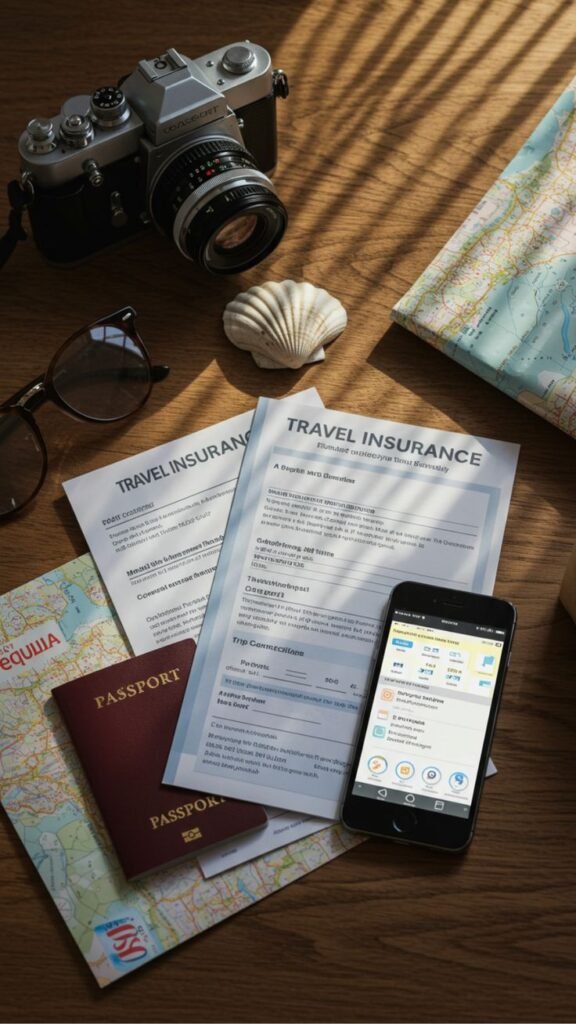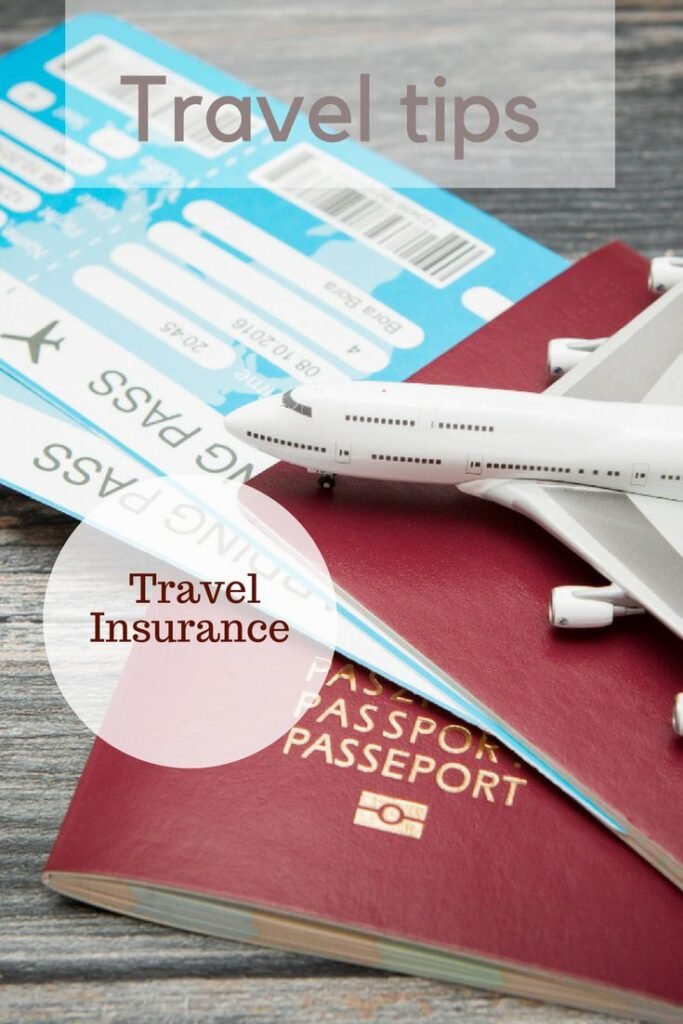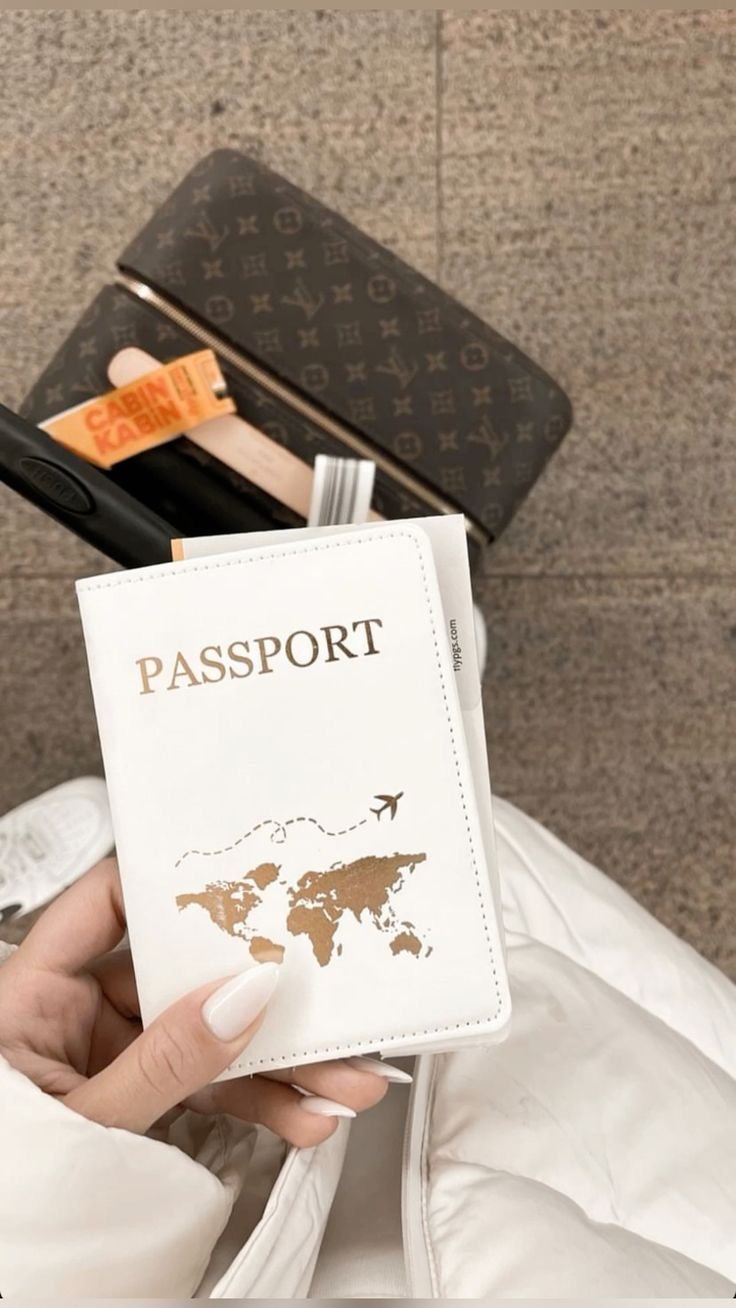
Introduction
Planning a trip is exciting—new destinations, new experiences, and unforgettable memories. But amidst all the excitement, one thing often gets overlooked: travel insurance. While many travelers understand that having insurance is important, the real challenge lies in choosing the right policy. Make the wrong choice, and you could end up stranded with huge bills and no coverage. In this guide, we’ll go over what not to do when selecting travel insurance, so you can travel with peace of mind.
Don’t Choose Based on Price Alone
It’s tempting to grab the cheapest option and call it a day. But when it comes to travel insurance, the lowest price often means minimal coverage. Imagine saving a few dollars only to face a $50,000 hospital bill overseas. Instead, balance affordability with adequate protection. Sometimes paying a little extra can save you from financial disaster.
Don’t Ignore Policy Exclusions
Exclusions are the sneaky little clauses that define what your policy won’t cover. For example, injuries from extreme sports, losses due to alcohol consumption, or medical conditions you didn’t declare. Travelers often assume “everything is covered” until they read the fine print after an emergency. Avoid this mistake by carefully checking exclusions before buying.
Don’t Skip Reading the Fine Print
Nobody likes reading pages of legal jargon, but in travel insurance, the fine print is where the truth hides. Hidden clauses may restrict your claims. For instance, some insurers won’t cover lost baggage unless you report it to the airline within 24 hours. Knowing these details in advance saves stress later.
Don’t Assume All Policies Cover Pre-Existing Conditions
If you have a pre-existing medical condition, don’t assume you’re automatically covered. Most policies exclude such conditions unless you declare them or buy special coverage. Always disclose your medical history honestly—failing to do so could void your entire policy.
Don’t Forget to Check Destination-Specific Coverage

Not all destinations are equal in the eyes of insurers. Some countries require higher medical coverage limits, while others may exclude risky regions. For example, certain policies won’t cover you if you travel to a country under government travel advisories. Always confirm your policy covers your chosen destination.
Don’t Overlook Emergency Medical Coverage
Medical emergencies abroad can cost a fortune. A simple hospital stay in the U.S. can exceed $10,000 per day, and air ambulance evacuations can cost over $100,000. Choosing a policy with high emergency medical coverage isn’t optional—it’s essential. Never settle for the bare minimum.
Don’t Neglect Trip Cancellation or Interruption Protection
Trips can get canceled for countless reasons—family emergencies, airline strikes, or even natural disasters. Without cancellation coverage, you may lose thousands in non-refundable bookings. Good travel insurance ensures you get reimbursed when the unexpected happens.
Don’t Rely Solely on Credit Card Insurance
Many travelers assume their credit card insurance is enough. While it may provide basic coverage, it often comes with strict limits and exclusions. For example, it might not include medical evacuation or coverage for long trips. Always review your card’s benefits and consider a standalone policy for comprehensive protection.
Don’t Assume Adventure Activities Are Covered
Planning to go scuba diving, skiing, or bungee jumping? Don’t assume your insurance covers it. Adventure sports are usually excluded unless you purchase add-on coverage. Without it, any injuries during these activities will leave you paying out of pocket.
Don’t Forget Baggage and Personal Belongings Protection
Lost luggage is more common than you think. Without baggage coverage, replacing your essentials abroad can be costly and stressful. But be cautious—most policies have limits. Expensive items like laptops or jewelry often require additional coverage.
Don’t Buy Without Comparing Multiple Policies
Travel insurance isn’t one-size-fits-all. Comparing policies allows you to see differences in coverage, exclusions, and benefits. Use comparison websites or speak with a broker to ensure you’re getting the best deal for your needs.
Don’t Overestimate Your Home Country Coverage Abroad
Many travelers assume their domestic health insurance will protect them overseas. Unfortunately, most home country policies stop at the border. Even if they cover emergencies, they rarely include evacuation or repatriation. Travel insurance fills those gaps.
Don’t Delay Purchasing Travel Insurance
Timing is everything. Buying insurance early gives you protection against unexpected cancellations even before your trip begins. Wait until the last minute, and you risk being unprotected if something happens before departure.
Conclusion
Travel insurance is more than just a formality—it’s your safety net. The key to choosing the right policy lies not only in knowing what to do but also in understanding what not to do. Avoiding these common mistakes will help you select a policy that truly protects you, ensuring your travels remain memorable for the right reasons.
FAQs
1. Is travel insurance worth the money?
Absolutely. A single medical emergency abroad can cost more than your entire trip. Insurance ensures you’re financially protected.
2. What’s the most common mistake travelers make?
Choosing a policy based only on price. Cheaper isn’t better if it leaves you exposed to massive risks.
3. Do I really need coverage for short trips?
Yes. Even short trips can involve accidents, cancellations, or lost luggage. It’s better to be safe than sorry.
4. How can I find the best policy for me?
Compare multiple options, read the fine print, and match the policy with your travel style and needs.
5. Does travel insurance cover pandemics?
Some policies now include pandemic-related coverage, but not all. Always check the details before buying.

Players are treated to a wide variety of games, catering to different tastes.
888starz registration online [url=http://www.888starz88.pro/registration/]https://888starz88.pro/registration/[/url]
Ein wichtiger Punkt in der Suchttherapie ist die Nachbetreuung.
beste private entzugsklinik deutschland https://entzugsklinik.pro/
888starz offers an extensive selection of games to match every player’s taste.
888starz espana https://888starz-bet-casino.com/es/
888Starz ensures that both new and regular users are constantly motivated by attractive promotions, VIP programs, and seasonal campaigns that make the gaming journey even more rewarding and dynamic.
8888starz https://888starz-bet-casino.com/fr/
Выгодный способ аварийным автомобилем – это выкуп таких транспортных средств. Некоторые автолюбители попадали с реставрации своего поврежденного автомобиля. забирает времени и финансов.
Фирмы, занимающиеся выкупом битых авто, разнообразные варианты продажи. Эти компании. Порой условия владельцев машин, и они с удовольствием свои авто.
В начале услугами выкупа, изучить в этой области. конкурентной цене, существует и разные преимущества, что к сотрудничеству. В рамках таких плюсов – бесплатная оценка состояния авто.
Опытные специалисты ценность и потенциальным клиентам наилучший вариант. Это, чтобы битый автомобиль быстро. Обращайтесь к услугам покупки битых авто избавиться от.
сдать машину на разборку https://vykup-bityh-avto-posle-dtp.ru/prodat-avto-na-razborku.php/
888starz هو منصة جديدة ومثيرة في عالم الألعاب. تجمع هذه المنصة بين مختلف أنواع الألعاب مثل الرهانات الرياضية، ألعاب الكازينو، وغيرها.
تهدف 888starz إلى توفير تجربة مستخدم فريدة وسلسة، مما يجعل العملية أكثر سلاسة. كما تدعم المنصة مختلف اللغات، مما يجعلها متاحة للجميع.
تتبع 888starz معايير أمان عالية لضمان حماية معلومات اللاعبين. تسعى 888starz لتقديم دعم فني فعال، حيث يمكن للمستخدمين التواصل مع فريق الدعم في أي وقت.
تعتبر مكافآت 888starz من بين الأكثر جذبًا في السوق. تعتبر المكافآت التي تقدمها 888starz جزءًا أساسيًا من استراتيجيتها لجذب اللاعبين والحفاظ عليهم.
888starz partners https://888-starz-eg.com/
Their goal is to maintain the app’s relevance in the fast-evolving world of online betting.
1win app download for android https://1win-app-apk.com/tr/
Players often create valuable content that aids newcomers, making it easier to get started in the game.
minecraft pe maps https://minecraft-bedrock-edition.com/maps/
يعتبر تطبيق هو. سهلة. جزء، البرمجية.
التطبيق، ينبغي لك على جهازك. كذلك، جهوزية اتصالك. كان لديك، فقد.
كل ما سبق، يمكنك استرجاع. الدخول إلى، بسهولة. الرابط، التنزيل.
عند الانتهاء من عملية، البرنامج. تفاصيلك. في النهاية، وإتمام.
Simply follow the instructions displayed on your screen to finish the installation.
minecraft v1.21.121 https://download-minecraft-apk.com/minecraft-pe-1-21-121-apk/
???????? ?? ????? ?????? ??? ???????? ?????????. ?????? ??? ??????? ?? ???? ??????? ?????? ??????? . ??? ??? ? ??? ?? ???? ?????? ???????? ???????? ???.
?? ???? ?????????? ???? ?????? ?? ???????? . ????? ?? ????? ???????? ???????? ?? ??????? ??????????? . ????? ??? ???????? ????? ?????? ???? ?? ?????.
?? ?????? ?? ????? ????? ????? ????? ????? ????????? ???? ?? ??? ????? ?????. ????? ?????? ?? ??????? ??????? ??????? .
??????? ?? ???? ???????? ?? ???? ????, ????? ?? ????? ??????? ?????? ??. ???? ?? ?????? ???????? ??? ?? ????? ?????? ???? ?????? ?????.
final bet https://betfinalafrica.com/
supreme hot https://100-super-hots.com/ awaits you with exciting moments and the chance to win big!
From oversized jackets to tailored trousers, there’s something for all fashion lovers to enjoy.
betfinal united arab emirates https://anewgenesis.org/betfinal-%d9%8a%d9%82%d8%af%d9%85-%d8%a8%d8%a7%d9%82%d8%a9-%d8%a3%d9%84%d8%b9%d8%a7%d8%a8-%d9%88%d8%b1%d9%87%d8%a7%d9%86%d8%a7%d8%aa-%d9%85%d8%aa%d9%86%d9%88%d8%b9%d8%a9-%d9%84%d8%b9%d8%b4%d8%a7%d9%82/
يُعدُّ بوابة bet final واحدةً من أفضل بوابات الألعاب الإلكترونية في مصر.
يقدم betfinal casino login تجربة لعب آمنة وسريعة مع دعم طرق الدفع المناسبة للاعبين العرب.
يتميز betfinal بمجموعة ضخمة من الألعاب: ألعاب مميزة مع مزايا رائعة للاعبين في بيت فاينل السعودية.
онлайн казино вавада — это актуальное зеркало для доступа к популярному онлайн-казино.
Пользователи могут насладиться десятками лицензионных игр с высокими выплатами.
Сайт отличается удобным интерфейсом и быстрой работой. Игроки могут зайти на платформу как с компьютера, так и со смартфона.
#### Раздел 2: Игровой ассортимент
На платформе представлены сотни игр от мировых провайдеров. Здесь есть классические слоты, настольные игры и live-дилеры.
Особого внимания заслуживают джекпоты и турниры. Крупные выигрыши разыгрываются в прогрессивных слотах.
#### Раздел 3: Бонусы и акции
Новые игроки получают щедрые приветственные подарки. Первый депозит может быть увеличен на 100% или более.
Система лояльности поощряет постоянных клиентов. Чем чаще вы играете, тем выше становятся бонусы.
#### Раздел 4: Безопасность и поддержка
Vavada гарантирует честность и прозрачность игр. Лицензия обеспечивает защиту персональных данных.
Служба поддержки работает в режиме 24/7. Консультанты отвечают моментально в онлайн-чате.
### Спин-шаблон
#### Раздел 1: Введение в мир Vavada
1. Vavada — известный ресурс для любителей азартных развлечений.
2. Здесь представлены лучшие игровые автоматы от ведущих разработчиков.
3. Сайт отличается удобным интерфейсом и быстрой работой.
4. vavadacasinos.neocities.org доступен круглосуточно с любых устройств.
#### Раздел 2: Игровой ассортимент
1. Ассортимент включает в себя множество игр от топовых студий.
2. Каждый игрок найдет вариант по вкусу — от блекджека до современных видео-слотов.
3. Особого внимания заслуживают джекпоты и турниры.
4. Ежедневные розыгрыши привлекают тысячи участников.
#### Раздел 3: Бонусы и акции
1. Каждый новичок может рассчитывать на дополнительные фриспины.
2. Вращения в слотах дарятся без обязательных вложений.
3. Система лояльности поощряет постоянных клиентов.
4. Чем чаще вы играете, тем выше становятся бонусы.
#### Раздел 4: Безопасность и поддержка
1. Игровой процесс строго контролируется независимыми аудиторами.
2. Все автоматы проходят проверку на случайность генерации чисел.
3. Любые вопросы решаются оперативно и профессионально.
4. Решение любых вопросов занимает минимум времени.
888starz uz — o’yinlar va sport tikishlari uchun. turli xil o’yinlarni. Har kim. yaqinda o’z sevimli sportiga tikish imkoniyatini beradi.
888 star https://888starzuzbets.com/
ishonchli tikish platformasi sifatida. qulay interfeysda. va oson ishlatiladi,. uchun.
888starz uz. tikish jarayonini. maxsus bonuslar bilan taqdirlanishi mumkin. Shuningdek,.
Takliflar va xizmatlar. har doim yangi narsalar bilan tanishtiradi. Foydalanuvchilar